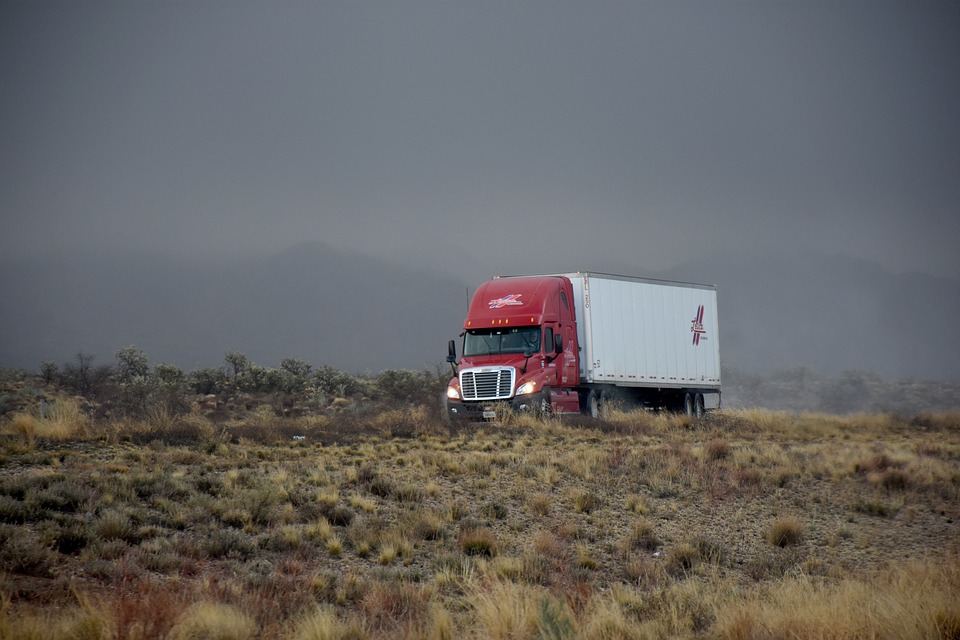Labor & Economy
Study: Misclassified Truckers Impede California’s Climate Goals
Many independent contractors can’t afford to upgrade their trucks to meet low-emissions standards. Will making them company employees change that?

A new report from the University of California, Berkeley’s Labor Center concludes that the misclassification of truck drivers as independent contractors works against California’s climate goals. Researchers said too many individual truck drivers – rather than their employers or fleet owners – are responsible for adopting low-emissions vehicles, and that many of these drivers are simply not complying with California clean air regulations. Vehicles, including commercial trucks, account for 40 percent of all greenhouse gas emissions in California.
Key findings of Truck Driver Misclassification: Climate, Labor, and Environmental Justice Impacts include:
- Widespread driver misclassification in local freight trucking, local pickup and delivery, and long-haul trucking in California.
- Drivers who meet the legal standard to be classified as employees are misclassified as independent contractors and face the burden of buying or leasing expensive vehicles to comply with clean vehicle rules.
- The contractor segment of the trucking industry has the lowest compliance rates with California’s current clean vehicle regulations, at 61 percent compliance, compared to 83 percent for large firms that directly employ truck drivers.
California’s heavy duty fleet requirements are spelled out in the 2008 Truck and Bus Regulation, adopted by the California Air Resources Board (CARB), which covers all privately and federally owned trucks and buses operating in California. The regulation requires owners or lessees of trucks greater than 14,000 pounds to use newer trucks or engines (model year 2010 or later), or to modify them with particulate filters.
When drivers own a truck, or lease it for more than one year, they are considered the regulated entity and are responsible for complying with environmental mandates. Trucking companies that employ drivers and use company vehicles are responsible for meeting the mandates.
The study’s co-author, Sam Appel, is the California Policy Organizer at BlueGreen Alliance. He told Capital & Main that most independent truckers can’t afford to upgrade their trucks, so they don’t.
“We see [independent truckers] earning between [$28,000 and $35,000] – and that is before taxes and equipment costs,” Appel said. “Then they get hit [with] another thousand dollars for environmental noncompliance.”
Noncompliance with bus and truck rules leads to higher particulate emissions, Appel adds: “These emissions are most concentrated in communities of color. Diesel particulate matter contributes to [a] 70 percent of risk of [getting] cancer from toxic air pollutants.”
* * *
Joe Rajkovacz, director of governmental affairs and communications for the Western States Trucking Association, criticized the study, claiming that most truckers do not want to be employees. He noted the report’s main conclusion – that tens of thousands of “dirty” trucks are on California’s roads due to non-compliant independent drivers – will soon be a moot point when new CARB regulations go into effect to automatically block 2010 and older trucks from registration.
“There will be no ability to register a non-compliant truck after January 1,” Rajkovacz said. “Less than 60,000 trucks across fleets statewide, out of half a million, are [non-compliant]. These ‘catch me if you can’ drivers next year will not be able to drive.”
Rajkovacz, a former independent trucker, pushed back on the study’s conclusion that many drivers are victims of misclassification. “There are legitimate independent contractors in trucking. [In] the Port of L.A., there was misclassification [of truckers] and that is being used against the whole industry.”
The Labor Center’s report was released as the legislature considers Assembly Bill 5, which would reclassify many California workers as employees. AB 5 would codify a 2018 California Supreme Court decision, Dynamex Operations West, Inc. v. Superior Court of Los Angeles, which established a new test for classifying workers. The Dynamex ruling said that in order to hire someone as an independent contractor, a company must prove that the worker is: a) free from company control; b) providing services not central to the company’s business model and c) running an independent business.
Lobbyists for various industries, including trucking, have been seeking exceptions to the Dynamex rules. Earlier last week, AB 5’s author, Assemblywoman Lorena Gonzalez (D-San Diego), told Capital Public Radio that, while the freight-hauling industry has a history of misclassifying drivers, a compromise deal with the trucking industry was being negotiated.
Copyright Capital & Main

-

 The SlickJanuary 23, 2026
The SlickJanuary 23, 2026Yes, the Energy Transition Is Coming. But ‘Probably Not’ in Our Lifetime.
-

 The SlickJanuary 27, 2026
The SlickJanuary 27, 2026The One Big Beautiful Prediction: The Energy Transition Is Still Alive
-

 Column - State of InequalityJanuary 29, 2026
Column - State of InequalityJanuary 29, 2026Are California’s Billionaires Crying Wolf?
-

 Latest NewsFebruary 3, 2026
Latest NewsFebruary 3, 2026Amid the Violent Minnesota Raids, ICE Arrests Over 100 Refugees, Ships Many to Texas
-

 Dirty MoneyJanuary 30, 2026
Dirty MoneyJanuary 30, 2026Amid Climate Crisis, Insurers’ Increased Use of AI Raises Concern For Policyholders
-

 Featured VideoFebruary 4, 2026
Featured VideoFebruary 4, 2026Protesters Turn to Economic Disruption to Fight ICE
-

 The SlickFebruary 2, 2026
The SlickFebruary 2, 2026Colorado May Ask Big Oil to Leave Millions of Dollars in the Ground
-

 Column - State of InequalityFebruary 5, 2026
Column - State of InequalityFebruary 5, 2026Lawsuits Push Back on Trump’s Attack on Child Care

